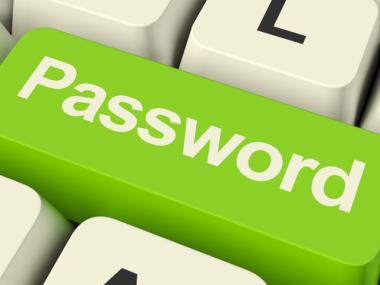How Does the Internet Work?
Tech Talker explains the basics of how the internet works!


Sponsor: Netflix Instant Streaming. Watch thousands of TV episodes and movies on your PC, Mac, iPad, iPhone or Touch. Or on your TV through your XBox, PS3 or Wii. All streamed instantly by Netflix, saving you time, money and hassle. For a free 30-day trial, including all 46 episodes of Breaking Bad, go to Netflix qdt.
The Internet v. The Web
First I want to clear something up. It is pretty common to hear the terms “Internet” and “the web” used interchangeably. However, there is a difference between the two.The internet encompasses the web. The internet is the infrastructure of networks that allows the web to exist and the web is made up of pages.
Now that we’ve clarified, let’s move on to the cloud. I frequently get asked, “What is the cloud?” In fact, I did an episode a while back on just that very question. The answer is actually really simple: The cloud is the internet, just with a fancy marketing term. So when your files are stored in the cloud, that’s just the same as saying they are stored on the internet.
The internet however isn’t like a cloud at all; instead it’s actually a collection of computer networks. When a computer is plugged into the network, it can then communicate with other computers also connected to the network. Each device connected to the internet has an Internet Protocol Address or IP address which is a unique set of numbers assigned to that device which allows it to send and receive information. This is similar to the way your house has a unique address that allows snail mail to get there pretty regularly.
Next there are routers that help direct where your data is going to ensure your information gets from point A to point B in the most efficient way possible. You probably have a router in your house, and this router helps to direct internet traffic between your Internet Service Provider or ISP (such as Comcast, AT&T, or Charter) and the devices in your house.
See also: How to Buy a Router
The last piece of this puzzle are domains. Domains are a human-friendly way of determining what you want your computer to communicate with. For example, to a computer Google.com is the same as 74.125.239.134, which is Google’s IP address! You can actually type that IP address into a web browser and it will take you to Google.com. Domain names make it a little easier to remember which website you want to visit. After all, it would be a pain to remember a string of numbers, as opposed to Google.com or QuickandDirtyTips.com!
Next there’s the data itself. Whenever you send something over the internet, it gets split up into a bunch of smaller pieces called packets. These packets have your IP address encoded in them as well as the destination IP address. Once these packets all reach their destination the computer recompiles them together.
An Example of How the Web Works
Let’s look at a quick example with all of our new information. Say you want to check your Facebook page. Your computer connected to your router would request to connect to your ISP, and from there your request would get forwarded on to Facebook’s IP address. Your computer would then download files from Facebook in the form of packets to your internet browser where they are then recompiled for you to view.
That’s a ton of work that gets done at the speed of light!
But that’s not all. The two coolest things about this whole process are:
- That the internet is decentralized.
- That all computers and websites follow the same set of rules.
How the Web Was One
When I say the internet is decentralized, what I mean is that there is no one place you can point to as being the internet. If Facebook were to go offline, it would not take another website offline simply because it was connected to it. If a piece of the internet were to be shut off or disconnected, routers would simply navigate your files around in a different way. This would be just like if your main route to work was under construction, it would be inconvenient but you could probably find a detour.
The absolute coolest thing about the internet though is that every computer plays by the same sort of rules. No matter what system you use, Windows, Mac, Linux, or anything else, it will utilize the same internet protocols to send and receive data. Just think tabout it: There are over a billion devices that are all using the same set of rules to transfer and receive information. Every mobile phone, tablet, computer, server, and router is compatible based upon these protocols. Amazing!
With that, here are your Quick and Dirty Tips for how the internet works:
- The internet is a network of networks where every device uses the same protocols to route data across the internet.
- The internet is a decentralized system.
- Internet Protocol Addresses or IP addresses tell your data where it’s going and where it’s been!
- Routers direct your data so that it gets to the right place and back at the speed of light!

Until next time, I’m the Tech Talker, keeping technology simple!





